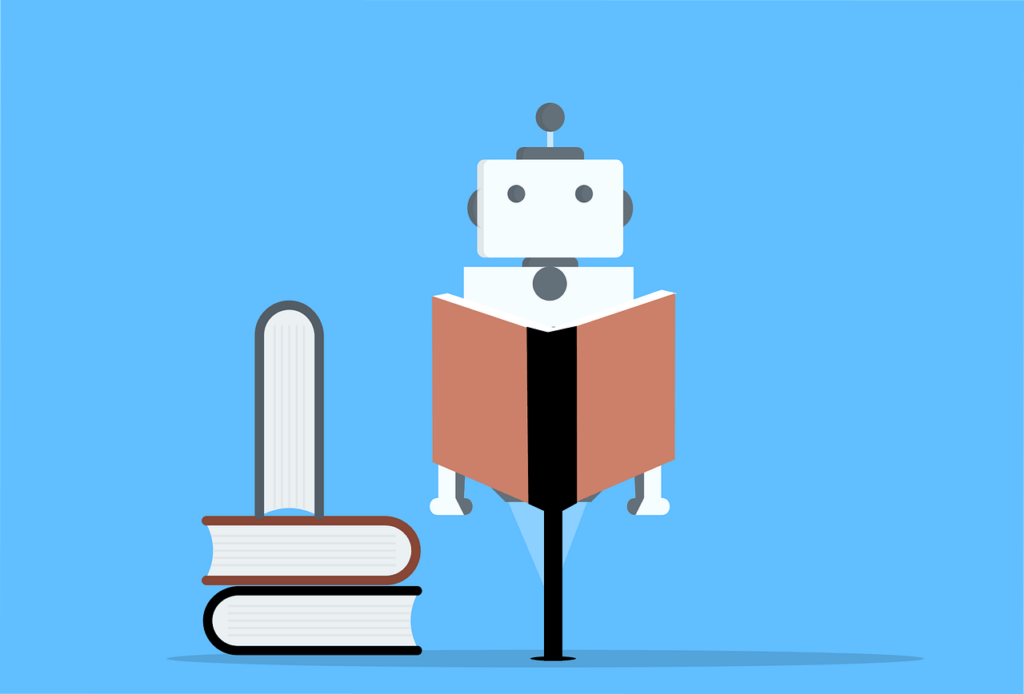Benefits of AI in Education
Personalized Learning
One of the most profound benefits of AI in education is its ability to personalize learning experiences. AI systems analyze individual student performance, learning styles, and preferences to tailor educational content. These systems can adjust the difficulty level of tasks, suggest additional resources, and provide customized feedback, all in real-time. This individualized approach ensures that each student can learn at their own pace and according to their unique needs, making learning more effective and engaging. For instance, AI-powered platforms can identify specific areas where a student might be struggling and offer targeted exercises or explanations to help them overcome these challenges. This level of personalization was previously unattainable in traditional educational settings where one-size-fits-all approaches were common.
Efficiency and Automation
AI significantly enhances efficiency in education by automating a variety of administrative tasks. AI algorithms can handle time-consuming tasks like grading assignments and tests, managing schedules, and tracking student attendance. This automation frees up educators’ time, allowing them to focus more on teaching and interacting with students. Moreover, AI systems can provide educators with valuable insights into student performance and classroom dynamics, aiding in more informed decision-making. For example, an AI system can analyze test results for an entire class, identify common areas of difficulty, and suggest changes to the curriculum or teaching methods to address these issues.
Accessibility
AI technology is a game-changer in terms of making education more accessible, especially for students with disabilities or those in remote areas. AI-powered tools can provide assistive technologies, like speech-to-text services or personalized learning interfaces, catering to the needs of students with various disabilities. For students in remote or underprivileged areas, AI-driven online learning platforms and resources offer access to quality education that might otherwise be out of reach. AI can also bridge language barriers, offering translation and language learning tools that make educational content accessible to a broader range of students. This democratization of education is crucial for fostering equitable learning opportunities across diverse socioeconomic and geographical backgrounds.
Challenges and Concerns
Ethical Considerations
 As AI becomes more integrated into education, it raises significant ethical concerns, particularly around privacy, data security, and the ethical use of AI. The vast amount of data collected by AI systems, including sensitive student information, poses a risk if not handled securely and responsibly. There are concerns about how this data is used, who has access to it, and how decisions based on AI analysis might impact students. The potential for bias in AI algorithms is another ethical consideration. These systems are only as unbiased as the data and programming they receive; any inherent biases in these aspects can lead to unfair or discriminatory educational practices. Ensuring that AI in education adheres to ethical standards is crucial for maintaining trust and integrity in the educational process.
As AI becomes more integrated into education, it raises significant ethical concerns, particularly around privacy, data security, and the ethical use of AI. The vast amount of data collected by AI systems, including sensitive student information, poses a risk if not handled securely and responsibly. There are concerns about how this data is used, who has access to it, and how decisions based on AI analysis might impact students. The potential for bias in AI algorithms is another ethical consideration. These systems are only as unbiased as the data and programming they receive; any inherent biases in these aspects can lead to unfair or discriminatory educational practices. Ensuring that AI in education adheres to ethical standards is crucial for maintaining trust and integrity in the educational process.
Digital Divide
The digital divide is a significant challenge in the widespread adoption of AI in education. Disparities in access to AI technologies can exacerbate existing inequalities in education. Students in underprivileged or remote areas may lack the necessary technological infrastructure, such as high-speed internet or modern computing devices, to benefit from AI-driven educational tools. This divide not only limits the reach of AI benefits but also risks widening the educational gap between different socio-economic groups. Addressing this challenge requires concerted efforts to improve technology access and infrastructure across diverse communities, ensuring that the advantages of AI in education are equitably distributed.
Dependence on Technology
Another concern is the potential over-reliance on AI in the learning process. While AI can enhance education, there’s a risk that an excessive dependence on technology might diminish certain aspects of traditional learning. Skills such as critical thinking, problem-solving, and interpersonal communication are crucial and often developed through direct human interaction and less structured forms of learning. Balancing the use of AI with traditional educational methods is essential to ensure that students develop a comprehensive skill set. Moreover, there is a risk that over-dependence on technology could lead to a lack of resilience in learning environments when technology fails or is unavailable. Educators and policymakers must navigate these concerns carefully, leveraging the benefits of AI while maintaining a holistic approach to education.
Preparing for an AI-Driven Educational Future
Educators and Institutions
As AI integration in education accelerates, educators and institutions must adapt to leverage its full potential. Firstly, educators should receive training to become proficient in using AI tools. Understanding how AI works, its capabilities, and limitations is crucial for effectively integrating it into the classroom. Institutions should also invest in updating their technological infrastructure to support AI applications, ensuring that both hardware and software are up to date.
Another critical aspect is curriculum development. Institutions should consider revising their curricula to include AI literacy, ensuring that students are not only users of AI but also understand its underlying principles. This approach would help students become more informed and responsible digital citizens.
Institutions should also foster partnerships with tech companies and educational technology firms to stay abreast of the latest developments in AI. Such collaborations can provide valuable resources, insights, and opportunities for practical applications of AI in educational settings.
Students
In an AI-enhanced educational landscape, students need to acquire specific skills and competencies to thrive. Critical thinking and problem-solving skills are paramount, as AI solutions often require a creative and analytical approach. Students should also develop data literacy, understanding how to interpret and use data effectively, a skill that is becoming increasingly important in a data-driven world.
Soft skills like adaptability, communication, and collaboration are equally important. As AI changes how work is done, students must be able to adapt to new environments and work effectively with both AI systems and humans. Ethical understanding and digital responsibility are also crucial competencies, as students must learn to navigate the complex ethical landscape of an AI-driven world.
The role of AI in shaping the future of education is undeniable. It promises a more personalized, efficient, and inclusive learning environment, adapting to the needs and capabilities of each student. However, this journey is not without its challenges. Balancing technological integration with ethical considerations, addressing the digital divide, and preparing educators and students for a rapidly changing landscape are critical steps in harnessing AI’s full potential.
Ultimately, AI in education is more than just a technological evolution; it’s a catalyst for a broader educational revolution. As we embrace this AI-driven future, it’s essential to approach it with a balanced perspective, optimizing its benefits while mitigating its risks, to create an educational experience that is enriching, equitable, and empowering for all learners.
 The contemporary educational landscape is witnessing a rapid integration of Artificial Intelligence, with various innovative technologies making significant inroads. One of the most prominent applications is in personalized learning platforms. These platforms use AI algorithms to adapt content and assessments based on individual student performance and learning styles, ensuring a tailored learning experience. AI-driven analytics are being used to identify students’ strengths and weaknesses, offering insights that help teachers customize their teaching approaches.
The contemporary educational landscape is witnessing a rapid integration of Artificial Intelligence, with various innovative technologies making significant inroads. One of the most prominent applications is in personalized learning platforms. These platforms use AI algorithms to adapt content and assessments based on individual student performance and learning styles, ensuring a tailored learning experience. AI-driven analytics are being used to identify students’ strengths and weaknesses, offering insights that help teachers customize their teaching approaches.





